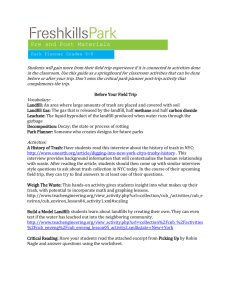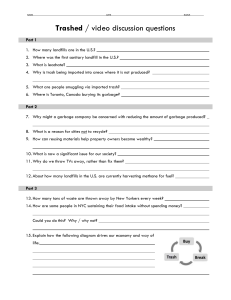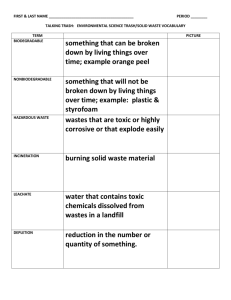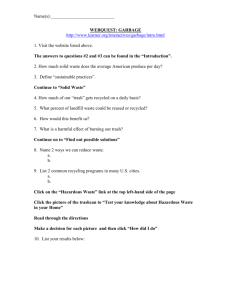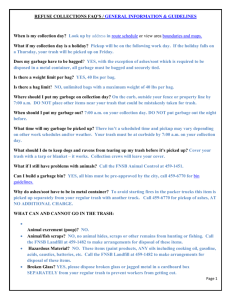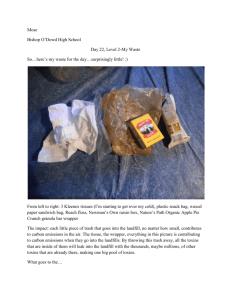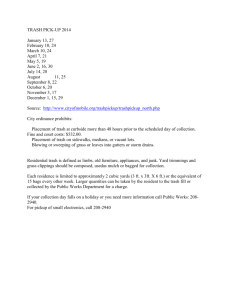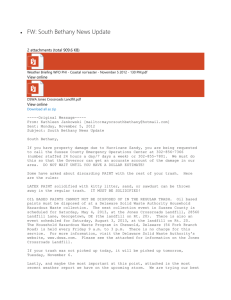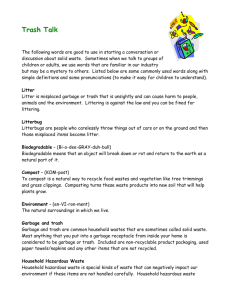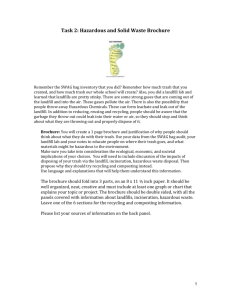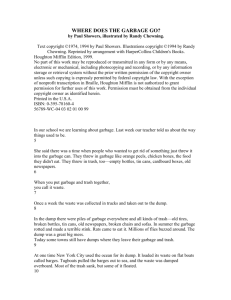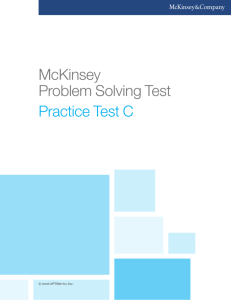Students will gain more from their field trip experience if it is
advertisement
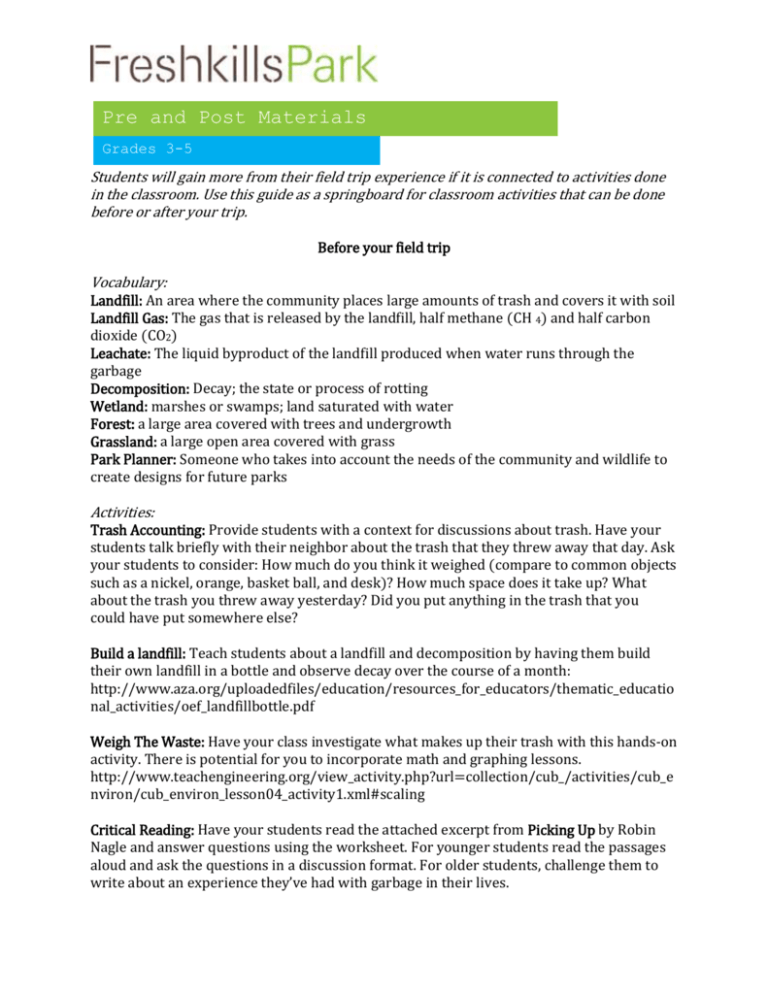
Pre and Post Materials Grades 3-5 Students will gain more from their field trip experience if it is connected to activities done in the classroom. Use this guide as a springboard for classroom activities that can be done before or after your trip. Before your field trip Vocabulary: Landfill: An area where the community places large amounts of trash and covers it with soil Landfill Gas: The gas that is released by the landfill, half methane (CH 4) and half carbon dioxide (CO2) Leachate: The liquid byproduct of the landfill produced when water runs through the garbage Decomposition: Decay; the state or process of rotting Wetland: marshes or swamps; land saturated with water Forest: a large area covered with trees and undergrowth Grassland: a large open area covered with grass Park Planner: Someone who takes into account the needs of the community and wildlife to create designs for future parks Activities: Trash Accounting: Provide students with a context for discussions about trash. Have your students talk briefly with their neighbor about the trash that they threw away that day. Ask your students to consider: How much do you think it weighed (compare to common objects such as a nickel, orange, basket ball, and desk)? How much space does it take up? What about the trash you threw away yesterday? Did you put anything in the trash that you could have put somewhere else? Build a landfill: Teach students about a landfill and decomposition by having them build their own landfill in a bottle and observe decay over the course of a month: http://www.aza.org/uploadedfiles/education/resources_for_educators/thematic_educatio nal_activities/oef_landfillbottle.pdf Weigh The Waste: Have your class investigate what makes up their trash with this hands-on activity. There is potential for you to incorporate math and graphing lessons. http://www.teachengineering.org/view_activity.php?url=collection/cub_/activities/cub_e nviron/cub_environ_lesson04_activity1.xml#scaling Critical Reading: Have your students read the attached excerpt from Picking Up by Robin Nagle and answer questions using the worksheet. For younger students read the passages aloud and ask the questions in a discussion format. For older students, challenge them to write about an experience they’ve had with garbage in their lives. After your Field Trip Reflection: Have students reflect on their experience at the park by writing a paragraph describing their vision for the future Freshkills Park, or continuing to work on the drawings that they created on their field trip. Recycled Towers: Give your students the opportunity to engage their creative side and demonstrate principles of reuse in this activity where students use recycled materials to build a tower (50 minutes). http://www.teachengineering.org/view_activity.php?url=collection/cub_/activities/cub_e nviron/cub_environ_lesson05_activity3.xml Picking Up by Robin Nagle (p. 28-29) “It started when I was ten years old. The forest where my father took me camping seemed so pristine that I could almost pretend we were its first human visitors—until we discovered, just behind our campsite, an open-air garbage dump about forty feet square. Fat flies buzzed moldy orange peels, empty soup cans rusted near a single sneaker, and balls of crumpled aluminum foil glinted next to spent Tang packets. There was even that signature stink. I was astounded. How could my fellow campers be so thoughtless? Obviously, they had no problem letting their garbage become someone else’s problem, but whose exactly? Were they assuming the services of a special Forest Ranger Trash Brigade? Was a garbage truck scheduled to appear via some road I hadn’t noticed? […] The behavior of a few careless campers was merely a small example of what most of us do all the time, on a much grander scale, with objects we no longer need and no longer want. We toss trash in a litter basket or put it on the curb in bags or in garbage cans behind our homes or drop it down an apartment building chute or drive it to the local dump or even, yes, let it fall on the street or toss it from our car windows, and never think about it again” Vocabulary Pristine: in its original condition, unspoiled Astounded: shocked or greatly surprised Q: How was the open-air garbage dump in the woods created? Q: What could the campers have done differently?
